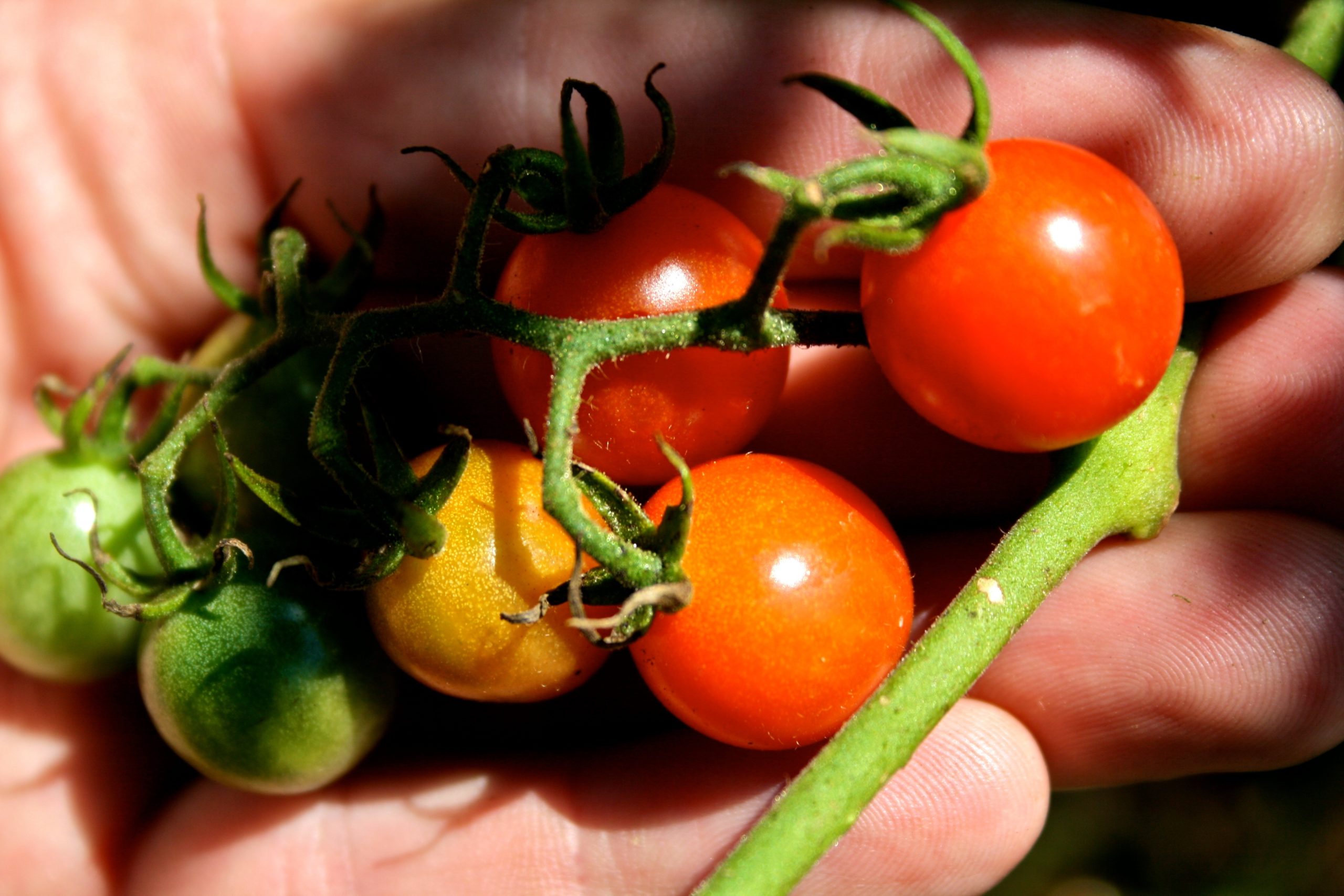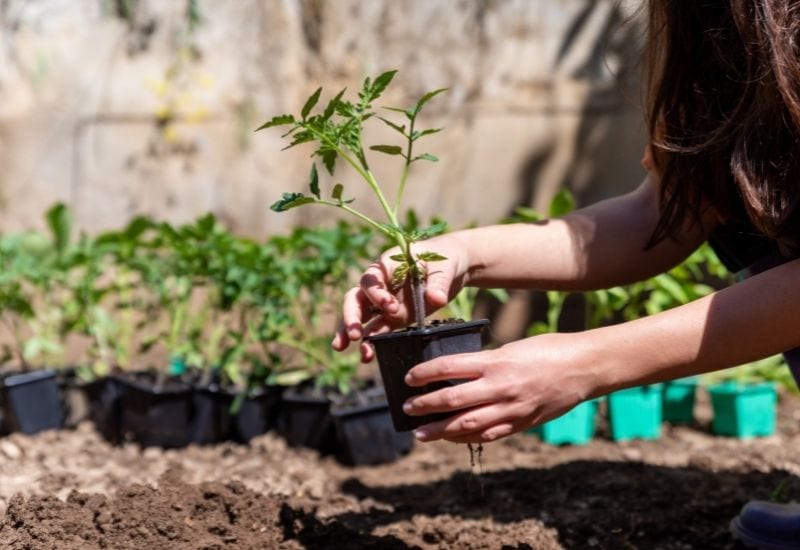The practice of growing tomatoes upside down has been around for more than a decade. They can be grown successfully this way with a little knowledge, even though, in most cases, upright planting is preferable. Where garden space and sunlight are limited, hanging tomato planters can be useful. Here is everything you need to know about growing tomatoes upside-down.
Growing Tomatoes in the Right Spot

Before planting your tomatoes upside down, you should find a suitable location to hang the container. You must consider the planter’s total weight and the available sunlight. An upside-down tomato planter can be heavy. The installation of sturdy hanging hardware on a secure structure is quite important. If the wind is a concern in your location, you need to hang the container in an area protected from it.
Making an Upside-Down Tomato Planter
First, you need to gather materials. You will need a five-gallon bucket with a sturdy handle and lid. Then, you need potting soil and two sheets of newspaper.
Choosing the Correct Tomato Plant

You must select a tomato plant with small fruits, such as grape, cherry, pear, or currant tomato. The fruit produced by Roma, beefsteak, and slicer varieties can be too heavy for the branches of a suspended tomato plant. Included in the best small-fruited cultivars are Jasper, Valentine, Sun Gold, Jolly, and Super Sweet 100.
Making Planting Holes and Adding Soil
Make a two-inch-wide hole in the bottom of the container used for the tomatoes using a drill and saw attachment. Cover the planting opening with two sheets of newspaper. Fill three-quarters of the bucket with potting soil, water it thoroughly, and then cover the container.
Preparing the Tomatoes Seedlings

Remove the tomato seedling from its nursery pot. Then, gently wrap the root ball in a single sheet of newspaper. As you wedge the root ball into the opening at the bottom of the bucket, the newspaper will protect it.
Planting the Seedling
Place the bucket on its side so you can access the planting opening. Make a hole in the newspaper covering the planting hole, and then remove the soil to make space for the root ball of the seedling to sit. Place the seedling in the cavity for planting.
Hanging the Planter
Hang the upside-down tomato planter in a secure location that can support its entire weight. The lid can be removed if you prefer, or you can leave it in place and remove it as required to water.
A Few Tips to Consider

Water the upside-down tomato planter as you would any other container plant. Check the moisture of the soil every day. If the top inch of soil is dry, you should water the container until water flows out of the bottom. Keep the soil moist but not drenched. During watering, the container may lose soil. Replace it by topping off the container as necessary with new potting soil. As soon as the tomatoes are ripe, harvest them to reduce tension on the hanging branches. Good luck!